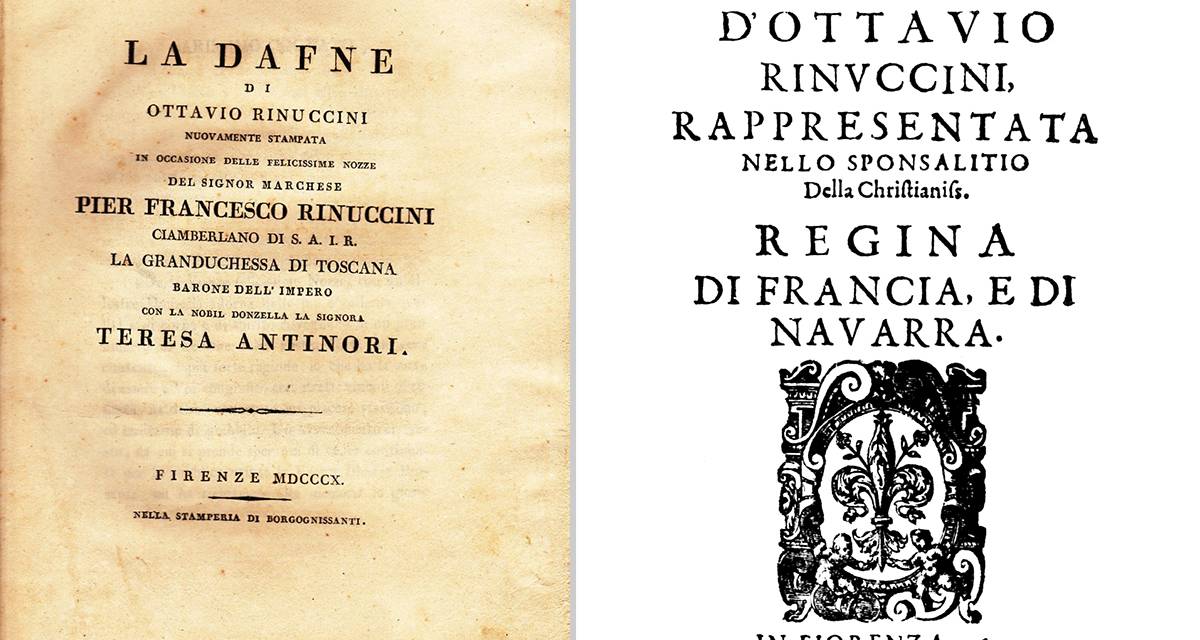To address the question of what was the world’s first opera, we must first consider what the key elements of an opera are. The artform is a combination of sung dialogue and acting. It differs from, say, a play or musical theatre because there is no spoken dialogue, neither is it a concert performance as the singers are expected to act as well as sing. The production has to be staged – requiring set design, direction, costumes and space in which to perform.
Opera arose from a long tradition of musical performances, drawing from older traditions of medieval and Renaissance courtly entertainment. The artform arose at the end of the 16th century in Italy. The word ‘opera’ (meaning ‘work’ in Italian) was first applied in 1639.
It is generally agreed that Dafne by composers Jacopo Peri and Jacopo Corsi, with a libretto by Florentine poet Ottavio Rinuccini, met all the criteria to be the first true opera. This is because the singers enacted an entire drama, with music throughout telling the story of Daphne, a naiad who is changed into a laurel to escape the attentions of Apollo.
Corsi and Peri were members of a group who believed that the tragedies of Classical Greek antiquity were sung rather than spoken. They also thought that such dramas, which were based on Greek mythology, were superior to contemporary works and sought to recreate them. So it made sense that their collaboration was entirely sung and was based on a Classical myth.
Dafne was first performed in 1597 in Florence, in the grand home of Corsi, probably during carnival celebrations that took place before Lent. While the libretto has survived in tact, only six fragments of the score remain, two by Corsi and four of Peri’s. It played to a select audience and Rinuccini commented that it “gave pleasure beyond belief to the few who heard it”.
Peri’s description of the style of musical speech which he was pioneering eloquently describes opera: “A harmony surpassing that of ordinary speech, but falling so far below the melody of song as to take an intermediate form.”
Peri and Rinuccini went to write Euridice, the earliest opera for which the score survives. It is occasionally performed as an historical curiosity. Peri wrote several other operas, none of which are considered great works.
However, this new musical style was heard by and inspired one Claudio Monteverdi. The director of music at the court of Mantua at the time, he wrote Orfeo, which premiered in Mantua in 1607. Described as a “fable in music”, this five-act opera tells the story of Orpheus’s love for Eurydice and his descent to the underworld to rescue her. And so began the long and distinguished history of opera.
Image
Front pages of Dafne’s score (left) and the libretto to Euridice (right).

